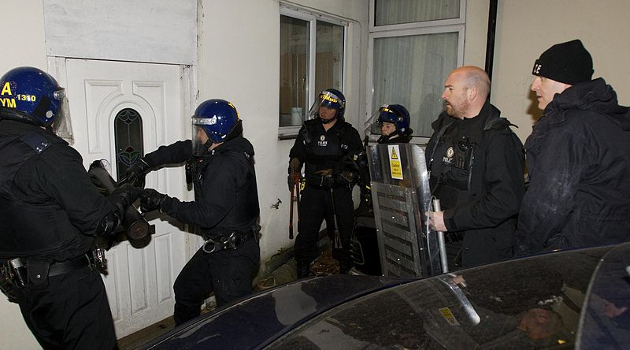I frequently cite Mark Perry in my columns (including what I wrote yesterday) because he has an uncommon ability to focus on what’s actually important when writing about economic issues.
It turns out he also has that ability when it comes to social issues, as illustrated by this tweet.
For those who aren’t familiar with Ms. Taylor, she was killed when cops raided her residence based on a dubious search warrant.
That incident, and the subsequent fallout, has triggered social unrest, and I recommend David French’s analysis if you want to know more about the various legal issues surrounding the case.
I want to focus on the bigger point, which is the foolishness of the War on Drugs.
Jacob Sullum of Reason captures my feelings in this excellent article.
Louisville, Kentucky, police officers did a lot of things wrong when they killed Breonna Taylor, an unarmed 26-year-old EMT and aspiring nurse, during a fruitless no-knock drug raid last spring. But the litany of errors that led to Taylor’s death would be incomplete if it did not include the biggest mistake of all: the belief that violence is an appropriate response to peaceful conduct that violates no one’s rights.
If politicians did not uncritically accept that premise, which underlies a war on drugs that the government has been waging for more than a century, Taylor would still be alive. …Drug prohibition legalizes conduct that otherwise would be instantly recognized as felonious, including assault, theft, trespassing, burglary, kidnapping, and murder. It makes police officers enemies to be feared rather than allies to be welcomed. …That problem goes far beyond the cases, such as Taylor’s, that are highlighted by Black Lives Matter. When a middle-aged white couple is killed in a drug raid instigated by a black narcotics officer who lied to obtain the search warrant (as happened in Houston last year) or a white 19-year-old is fatally shot by a white police officer during a marijuana sting (as happened in South Carolina several years ago), those outcomes are just as senseless and heartbreaking as the death of a young black woman gunned down by white drug warriors.
The individual tragedies in the War on Drugs, he explains, are compounded by the societal damage.
At any given time, nearly half a million people are incarcerated in U.S. jails or prisons for drug offenses. Drug offenders account for almost half of federal prisoners and 15 percent of state prisoners. Arresting all of those people for actions that violated no one’s rights unjustly deprives them of their liberty and impairs their life prospects. It also hurts their families and communities. …Which is not to say that the burdens of prohibition fall exclusively on people who like illegal drugs. Everyone else pays too, in the form of squandered taxpayer money, diverted law enforcement resources, theft driven by artificially high drug prices, and eroded civil liberties. …The war on drugs is also the main excuse for the system of legalized theft known as civil asset forfeiture, which allows police to take cash and other property they claim is connected to drug offenses.
I would add just one point to Sullum’s superb column. The War on Drugs is not only responsible for the horrid policy of asset forfeiture, it’s also the excuse for costly and intrusive laws on “money laundering.”
I’ll close with a few additional observations.
I’ve previously explained why the War on Drugs is pointless and counterproductive.
My argument isn’t that drugs do no harm. Instead, I want people to understand that the social harm of criminalization is much greater than the social harm of legalization.
If you want some additional data, I strongly recommend this collection of tweets by Joshua Collins.
1) THREAD: The War on Drugs Has Been a Dismal Failure; What’s Next?
In CO, 15,000 ppl were killed in a 20-year war against cartels, while the conflict in MEX caused more than 120,000 deaths and disappearances since 2006. Drug addiction rates in the U.S. have remained the same pic.twitter.com/bLdnMHL7gU
— ♂️Count Joshua VonCollins (@InvisiblesMuros) September 19, 2019
And here’s the logic – or lack of logic – of the War on Drugs captured in an image.
I call this the lather-rinse-repeat cycle of government failure.
P.S. Mark Perry is also famous for his Venn diagrams that expose hypocrisy (see here, here, here, here, and here). He even motivated me to create my own version.
———
Image credit: West Midlands Police | CC BY-SA 2.0.



